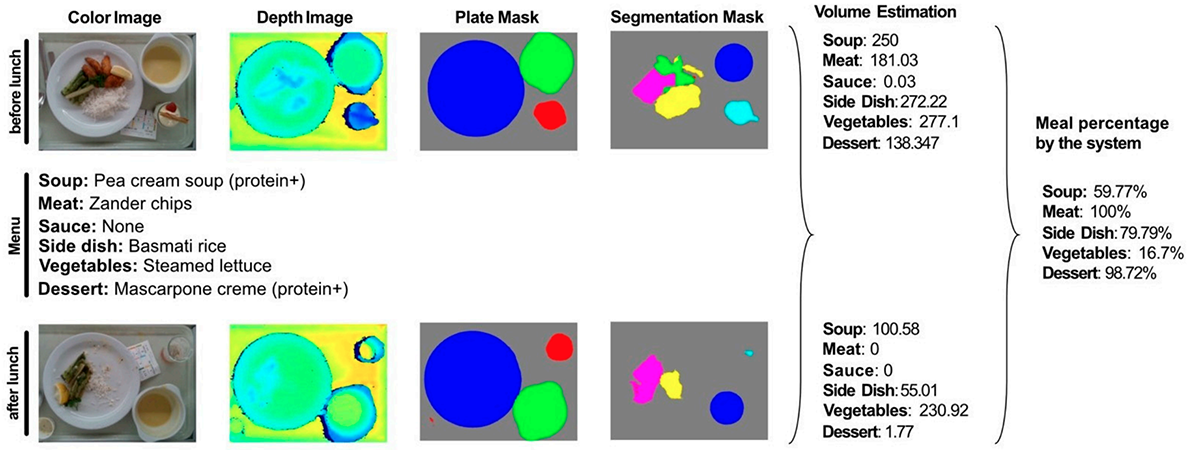2022/01/17 | Research | Artificial Intelligence
AI to prevent malnutrition in hospitals
During hospitalization, especially older patients are at risk of eating too little, leading to loss of muscle mass and higher risks of infection and mortality. The AI in Health and Nutrition lab has introduced an AI-powered system to automatically assess each patient’s energy and macronutrient intake by comparing pictures taken before and after each meal. In collaboration with the Geriatrische Klinik St. Gallen and the Inselspital, the team has assessed the systems’ performance as compared to expert estimates.
 The system receives as input the daily menu, the RGB-D images, and the plate and meal segmentation masks and estimates the volume of each dish before and after consumption.
(https://doi.org/10.3390/nu13124539)
The system receives as input the daily menu, the RGB-D images, and the plate and meal segmentation masks and estimates the volume of each dish before and after consumption.
(https://doi.org/10.3390/nu13124539)
The automatic, end-to-end, AI-powered system receives as input RGB-D food images captured on a standardised mount before and after consumption, along with the daily menu of the clinic’s kitchen, and can estimate the patients’ energy and macronutrient intake. It consists of a segmentation network for different food types and plates, and a volume/macronutrient estimation module to evaluate the volume of each food type. The consumed percentage from each meal component is then linked with the kitchen’s database to calculate the total energy and macronutrient intake.
The system offers higher accuracy than hospital’s standard procedure and – being automated – has the potential to lower the cost of dietary assessment in hospitals while contributing to enhanced dietary monitoring of patients at risk of malnutrition. The team now plans further clinical trials to evaluate the system’s potential for a more individualized malnutrition management in geriatric institutions and hospitalized patients.